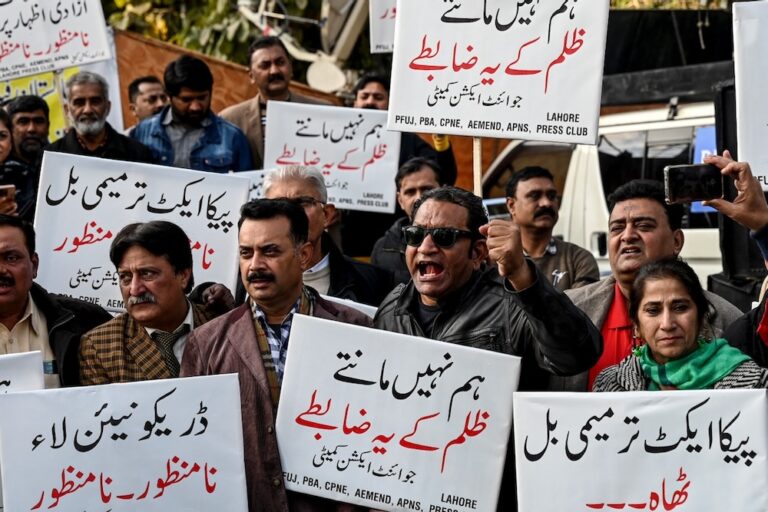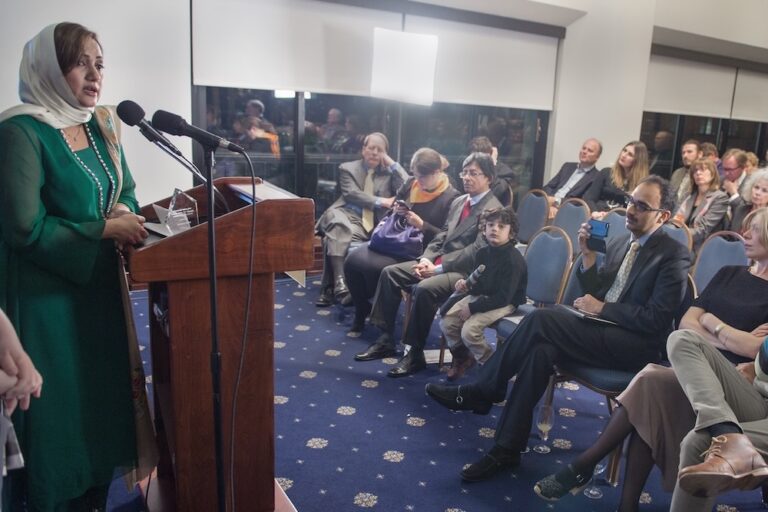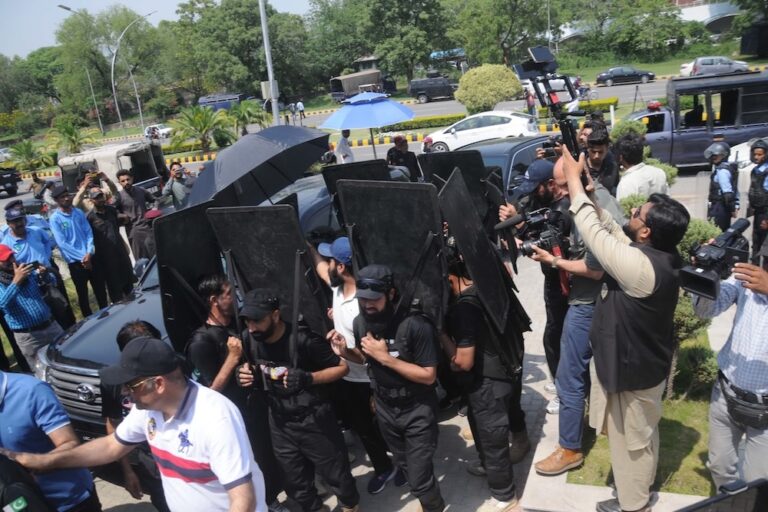(PPF/IFEX) – The Tehreek-e-Taliban in the troubled Swat region of Pakistan has warned newspapers and TV channels against publishing or broadcasting news against the Taliban. In a poster issued on 28 April 2009, the Taliban warned the media of dire consequences if they did not stop “propaganda” against the struggle of Taliban “for the enforcement […]
(PPF/IFEX) – The Tehreek-e-Taliban in the troubled Swat region of Pakistan has warned newspapers and TV channels against publishing or broadcasting news against the Taliban.
In a poster issued on 28 April 2009, the Taliban warned the media of dire consequences if they did not stop “propaganda” against the struggle of Taliban “for the enforcement of Shariah” in Malakand Division. Copies of the poster were posted outside the offices of a number of newspapers and private TV channels.
The poster addressed to “all editors of private and official news agencies, journalists and columnists” said, “you have a key role in changing the direction of the society, bringing revolution and making public opinion,” and added that it is “your responsibility to give space in your columns, editorials and headlines, to such news which creates positive results and represents the aspirations of the people of Malakand. Our two-year struggle was purely meant for the enforcement of Nizam-e-Adl (Islamic system of justice) and we have no other objective.”
The poster claimed that the tone of media coverage had changed over the previous one week and added “this changed tone of the media shows that journalists are either lured by the pro-West polices of media or are doing so under pressure.”
The poster said the Taliban would go to the Shariah court to file cases against the media if such reporting was not stopped. The poster added: “The media’s biased coverage was giving the impression that Taliban were sabotaging the Nizam-e-Adl. Journalists would be responsible for the grave consequences if they did not stop working on that agenda.”
The warning comes amidst growing nationwide criticism of the Taliban for violating the peace deal and resumption of armed patrolling in Dir and Buner districts of Swat even after the enforcement of Nizam-e-Adl Regulation.
The Pakistan Federal Union of Journalists (PFUJ) expressed concern over the threat which is tantamount to intimidation of the media and media personnel.
In a statement the PFUJ said if this tendency was allowed to develop, all non-state actors would start telling the media to project their particular point of view, and the media would not be able to play its due role as envisaged in the Constitution of Pakistan.
The PFUJ appealed to the Taliban’s leadership and government to realize their moral responsibilities and to ensure the protection of journalists and create a “conducive environment,” for fair and factual reporting. The PFUJ pointed out that media would not succumb to pressure from any group, government or Taliban for reporting as per their mandate.


